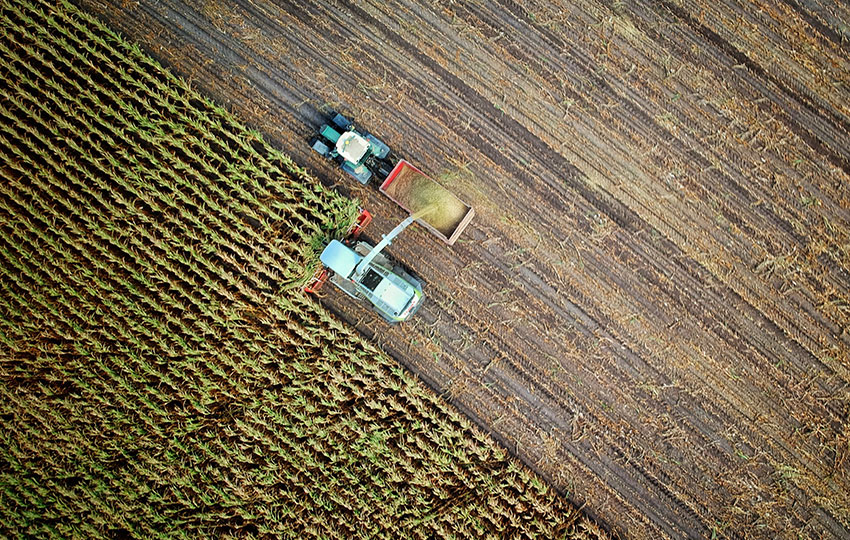Agricultural markets across the globe have seen a massive change over the past thirty years. The international trade of agricultural products is shifting. The local market is no longer as strong as it used to be. National markets are also falling behind. The global market system appears to be of trading seems to be growing larger and larger.
The result is simple. Local smaller farms are starting to compete against some of the world’s largest agricultural corporations. That is increasing the gap between local and global markets resulting in the local economy of many areas falling behind.
Commercialization is taking over
We can notice an increasing pressure on local farmers that are trying to commercialize their work without great success. Farmers need more production systems to increase their production line while at the same time urbanization and rapid growth population are not working on their benefit. Modernization is complicating matters, even more, seeing as farming families in rural areas need to increase their production but are unable to, due to lack of larger production equipment.
The solution to the problem is entrepreneurship. Farmers need to become entrepreneurs and adopt an agripreneurship model that will help them create their local clusters and start increasing their production as a synergy and not as individual local farmers.
Creating Value Chains
To achieve that, local farmers will need to create their value chains. Value chains are sets of connected stakeholders working together to add more value to their products. Value chains help increase efficiency, productivity and competitiveness by linking the stakeholders, in this case, the farmers, to processors and markets.
Apart from creating value chains between them, agripreneurs also need to be able to focus their actions on the market and not just the production. Many different systems can be used to approach the global market and depending on the clusters/value chain, agripreneurs need to find a system that is going to suit their activities the most.
That could be achieved by increasing the reach of the value chain and adding more important stakeholders in it, apart from the farmers. Suppliers, warehouse managers, financial services and transport companies could be some of the most important collaborators/ additions to a value chain in the field of agripreneurship!
How to be an Agripreneur
Changing the way a local farmer thinks to increase production is not difficult. What is difficult is to adapt to the mindset of an agripreneur. There is an entire study behind agripreneurship and it focuses on understanding the role of the farmer entrepreneur in the new market, identifying all the potential clients of this new and innovative type of entrepreneurship, which is agripreneurship and of course defining the business idea behind the value chain.
In agripreneurship, the most important thing that stakeholders need to remember is that the business needs to now have a much more enhanced commercial activity that involves trade and trading in every form. The enterprise which in this case is the business or organization that provides goods or services aiming to make a profit needs to have a value capture. That means that the enterprise needs to maintain the percentage of the value they provide in every single transaction. Entrepreneurship, after all, is all about high quality and value.
Having understood the concept behind agripreneurship and agripreneurial products we move on to one very important action that was not common in regular agriculture. That would be marketing. In a value chain, marketing the works the best is contractual marketing.
Contractual marketing is an approach in which companies that are in different levels of the value chain focus on working together to provide the best possible financial results and advantages than they could have on their own.
Marketing and Agripreneurship
Contractual marketing gives stakeholders in the value chain the opportunity to work with enterprises that could help them increase their reach and acquire a more diverse clientele. Marketing is indeed a great way to start setting up a strong presence in the market.
Digital marketing helps in creating a strong digital footprint which is necessary these days. Enterprises of any kind, without at least a basic digital presence, will not be allowed to turn to agripreneurship and compete against massive farming corporations.
To enhance rural centers and promote entrepreneurship in combination with agriculture, European Projects like the YEAH project are aiming to fund actions, teaching farmers how to become agripreneurs. The results and training material of these projects are available for free to any farmer, regardless of their age, to learn how they can get their spot in the global market.
Innovation is a part of entrepreneurship and agripreneurship cannot fall behind. Value chains work the best but without innovation, local farms will not be able to flourish, even through that. As a young farmer, you need to try and find that one innovative spark that will fire up your business and make you an important stakeholder in the global agricultural market!

